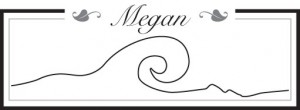Let’s get real. Self care sucks, but it feels so good.

Barton and Megan travel to Randolph, NH every year to relax, decompress form technology, reconnect, and breathe that beautiful mountain air.
For most caregivers, family members of people with disabilities, and let’s face it, any parent or active community member out there, we’d much rather be serving and doing than being. We’ve got meetings, doctor’s appointments, driving here or there, projects to finish, deadlines that are past due, a million things to do.
Most of the time, it’s not even for ourselves. It’s for our family members, children, community, business partner. And when we don’t have the energy, stamina or motivation, we are a cranky bunch.
This happened to me several years ago, when I thought getting up at 4am was late, I was only eating two meals a day and there was a to-do list that ran several pages long. And even though my mentor and I have talked about self-care on numerous occasions, in many variations, I continue to fall back. I know I need to take better care of myself, but there was just never enough time. “I’ll do it tomorrow,” I’d say. I was not pleasant to be around; just ask Barton.
Last week was the first week I had woken up early and had written morning pages in my journal, like I used to. And when I thought about when and why I had stopped, I was astounded. I remember being on a trip in Scotland with my family, and I would wake up early to take a walk in the hills on Skye, reflecting on the history of my family and connection with the Celts. At one point, my dad came up to me to say how my getting up early was disturbing my brother. While I was able to get my own room, I also felt in the way, like taking care of my needs was disturbing others. Unconsciously, I stopped. And even though I would write in my journal, it was never in the same way.
I wrote multiple pages in my journal everyday, consistently, and felt fabulous! After a week of writing by candlelight in the dawn of the day, I feel more focused and refreshed for the day because I am tapping into my creative flow.
The same thing goes for swimming. At one point I had even posted on my Facebook Page: “I am looking for an accountability partner, as no matter what else is going on, I am committed to swimming once during the week and once on the weekend.” Why, is it then so hard to get into the pool, even though I know I’ll feel so much better when I do?
There is an assumption that our needs can be last on the list, they can wait another day because what’s really important is the project, the person, or the cause in front of us.
Recently, one of my mentors asked me, “How devastating is it for you not to take care of yourself?” Not bad, not awful, but devastating. It is devastating to my husband and my community when I don’t take care of myself.
Wow- that shifted my perspective.
Here is my list of tips for self-care, and I’m working on them, too. So they are reminders for us to come back to again and again.
Tips for Caregivers (or you may have to create your own):
1. You can’t take care of anyone else unless you are taking care of yourself. No matter what else your inner-voice says.
2.What is as important to you as breathing? Defining different types of self-care is important.
Examples: Training in martial arts with Barton is learning how to protect myself and others, finding openings, and learning how to move through difficult situations. One-on-one Pilates instruction without Barton allows me to completely focus on own body movement (and there’s a distinct freedom in not having Barton there). Swimming helps me let go of strong emotions and clears my head. Morning writing allows me to tap into the creative flow for the day. A week in New Hampshire allows for us to unplug from technology and reconnect with each other.
It’ll be completely different for you, so look what works and how these components fit together.
3. Find a consistent routine, or take out non-negotiable time. The world could fall apart, and it’s okay because you are hitting the pavement with your sneakers. I have a particular hard time with this one, but the drop everything it’ll be there later, attitude helps.
4. Let go of the guilt (this is a big one). When we get off track, we feel guilty about not doing what we know we need to do, and this keeps us away from getting back on track. Berating yourself isn’t the way to recover. Getting back on track means doing it anyway, no matter how long it’s been.
What is your biggest struggle or success in self-care?


From a person with a disability’s prospective, I think not being able to take care of myself is a bit like being in jail. I mean we can do some things, eg, go on our computer, drink out of a straw, but that’s about it.(Actually, there’s more we can do.) I often dream about doing things, like eating on my own, walking without assistants, cooking, having a shower on my own…. The list goes on.